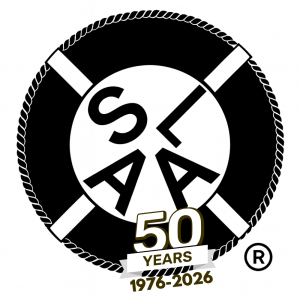The Question:
How can the 3rd tradition be best applied when behaviors undertaken in a meeting are disruptive to many in the meeting?
There are a large variety of options. Tradition 4 states that each group is autonomous except in matters affecting other groups or S.L.A.A. as a whole. Some options include having a business meeting or a series of business meetings and design a meeting format to be read at every meeting that would address the problems. An ad hoc or temporary committee could be formed to work on the format.
There are sample formats on the slaafws website which might provide ideas.
Another possible option would be to assign one or two people to a service position to talk with the S.L.A.A. members who behave disruptively.
You could also contact the Conference Diversity Committee (CDC) and/or the new Leadership Mentoring Subcommittee (LMS) of the Conference Charter Committee (CCC) for suggestions. You can reach these through the FWS Office.
I have been to a number of meetings where there have been disruptive attendees. I have always been impressed by how effectively the other attendees have dealt with these situations. Our tradition has been to maintain our individual sobriety by keeping the spotlight on our own addiction, not judging others, or needing to confront others. We are a program of attraction; so when we model sober behavior the disruptive member either follows suit or tires of meetings. Whenever this issue comes to the Intergroup level, the group conscience has consistently been that there are no S.L.A.A. police whose duty it is to control others or require a specific standard.
This is a very difficult and touchy subject with which to deal. A disruptive member has to be handled gently to avoid more disruption. I have been in many meetings where a sentence is added to the script to the effect that – if you feel that what another is sharing is inappropriate, please signify by raising your hand or quietly leave the room for a few minutes. Others have added a sentence to the effect – please avoid discussions of religion or other divisive subjects. I have been in meetings when a person seemed to almost be acting out as they shared or began to give a religious testimony.
In these cases someone actually had to take the floor from the speaker stating that this was inappropriate for a meeting. (A group conscience was held immediately following such an incident.) A good way to deal with this to avoid the escalation of such behavior has already been expressed, that is for a couple of more experienced members to speak with the offending person privately and let them know that the behavior is unacceptable, since it is disrupting the meeting. If the offending person will then either adjust their behavior or will look for another meeting to attend. I would be impossible to ban a member from a meeting in light of the requirements stated within the Third Tradition. In all cases the group conscience must deal with the problem and act accordingly.
I have a difficult time tying the question of disruptive behavior to Tradition 3 unless a group is trying to block the attendance of some members. If that is the case, Tradition 2 comes to mind… “Our leaders are but trusted servants; they do not govern.” Although the chair of the meeting is expected to keep the meeting flowing and in a spiritual place. I don’t think the chair of a meeting should be expected to police others, especially to the extent of asking them to leave.
The rest of Tradition 2 seems appropriate as well: “For our group purpose, there is but one ultimate authority–a loving God as this Power may be expressed through our group conscience…” If members’ behavior is affecting the meeting, I feel a group conscience is needed and hopefully the group will be open to discovering their Higher Power’s will for them.
Tradition 12 also reminds us to “place principles before personalities.”


